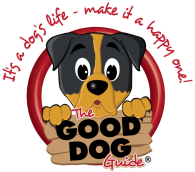When pets face injury, illness, or age-related decline, their quality of life can diminish rapidly. For owners, witnessing a once lively companion struggle with movement or experience discomfort is deeply concerning. Fortunately, dedicated rehabilitation services now offer remarkable solutions that help animals regain strength, improve mobility, and enjoy a more active lifestyle.
Specialist veterinary rehabilitation provides an effective, compassionate approach to supporting pets in recovery. By combining advanced techniques with tailored care, RehabVet clinic has revolutionised the way animals overcome physical challenges, ensuring they live healthier, happier lives.

Comprehensive Care for Lasting Results
The key to successful recovery lies in addressing each pet’s unique needs. While traditional veterinary care focuses on treating injuries or managing medical conditions, rehabilitation takes a broader view, promoting strength, flexibility, and overall well-being.
Tailored treatment plans ensure that no two pets are managed the same way. Whether recovering from surgery, managing a chronic condition, or coping with the effects of ageing, individualised care accelerates progress while minimising discomfort.
Enhancing Recovery Through Physiotherapy
Physiotherapy plays a vital role in improving movement and rebuilding strength. Specialised exercises are designed to restore muscle tone, improve coordination, and reduce pain. Targeted stretches and carefully guided movements enhance flexibility, ensuring joints regain their full range of motion.
These treatments are particularly valuable for animals recovering from orthopaedic procedures or neurological conditions. Physiotherapy prevents stiffness, reduces muscle wastage, and supports faster healing by encouraging controlled movement during recovery.
Regular physiotherapy can ease discomfort while improving mobility for pets with ongoing conditions such as arthritis. Carefully guided sessions ensure animals stay active and engaged, even when faced with age-related challenges.
Hydrotherapy: Harnessing the Power of Water
Water-based therapy offers exceptional benefits for pets experiencing joint pain, recovering from injury, or regaining fitness. Thanks to its buoyant properties, water reduces strain on delicate joints while providing resistance that strengthens muscles.
Aquatic treadmill sessions provide a controlled environment where dogs can rebuild strength without placing excessive pressure on healing tissues. This low-impact exercise helps preserve movement while minimising discomfort for pets managing degenerative conditions.
In addition to strengthening muscles, water-based therapy improves cardiovascular endurance, ensuring pets regain their stamina as they recover. The therapeutic warmth of the water also enhances circulation, promoting faster healing and reducing inflammation.
Speeding Recovery with Laser Therapy
Modern veterinary rehabilitation now embraces innovative treatments that accelerate healing and reduce discomfort. Laser therapy is a non-invasive technique that stimulates cell regeneration, enhances circulation, and alleviates pain.
This treatment reduces inflammation and speeds recovery from surgical procedures, muscle strains, and ligament injuries by targeting affected areas with concentrated light energy.
For pets coping with chronic pain or degenerative conditions, laser therapy offers welcome relief, promoting comfort without the need for excessive medication. Integrated into a broader rehabilitation plan, it proves particularly effective in maintaining long-term well-being.
Massage and Manual Therapy for Comfort and Healing
Soft tissue therapy plays a pivotal role in easing tension and restoring balance. Skilled practitioners use gentle massage techniques to improve blood flow, reduce stiffness, and soothe aching muscles.
This hands-on approach is especially valuable for older pets or those managing ongoing discomfort. Manual therapy supports physical and emotional well-being by reducing muscular tension, improving flexibility, and encouraging relaxation.
Owners are often encouraged to continue gentle massage techniques at home, fostering connection while reinforcing their pet’s recovery progress. This partnership enhances results, ensuring improvements made during clinical sessions are maintained throughout daily life.
Supporting Senior Pets with Gentle Rehabilitation
Ageing animals often face mobility challenges that reduce their activity levels. While slower movement and occasional stiffness are natural with age, targeted therapy helps senior pets maintain their independence and enjoy their golden years more comfortably.
Gentle exercises strengthen muscles, improve stability, and encourage movement without strain. Water-based treatments offer a low-impact solution for maintaining fitness, while soothing massage relieves aching joints.
By incorporating these techniques into an ageing pet’s routine, owners can help their companion remain active, engaged, and content well into their later years.
Assisting Post-Surgical Recovery
Following orthopaedic or neurological surgery, structured rehabilitation ensures the best possible outcome. A carefully designed recovery program helps pets rebuild strength gradually, reducing the risk of complications.
By combining physiotherapy, stretching exercises, and controlled movement routines, pets regain balance, coordination, and muscle tone more efficiently. Progress is carefully monitored to ensure the treatment evolves in line with the animal’s recovery pace.
This structured approach minimises discomfort while promoting safe, sustainable healing, allowing pets to return to their daily activities more easily and confidently.
Boosting Confidence and Emotional Well-Being
Beyond the physical benefits, targeted recovery programs also provide emotional support. As they adapt to restricted movement, animals recovering from injury, illness, or surgery may experience anxiety or frustration.
Interactive therapies build confidence by encouraging pets to explore movement in a positive, engaging environment. With guidance from skilled specialists, animals gradually regain trust in their bodies, allowing their natural curiosity and playfulness to flourish once more.
Owners are often involved in therapy sessions, fostering deeper connections while reinforcing their pet’s progress. This active involvement strengthens the bond between caregiver and companion, ensuring the recovery journey feels positive and rewarding for all involved.

Investing in a Healthier Future
The value of dedicated rehabilitation goes far beyond short-term recovery—it is an investment in a pet’s long-term comfort and well-being. By addressing underlying issues, restoring movement, and enhancing strength, pets are empowered to enjoy fuller, more active lives.
For owners seeking the best possible care for their cherished companions, veterinary rehabilitation provides a solution that combines expertise, compassion, and innovation. With the right support, pets can overcome physical challenges, rediscover their confidence, and return to the moments that bring them—and their owners—the greatest joy.
Article supplied
